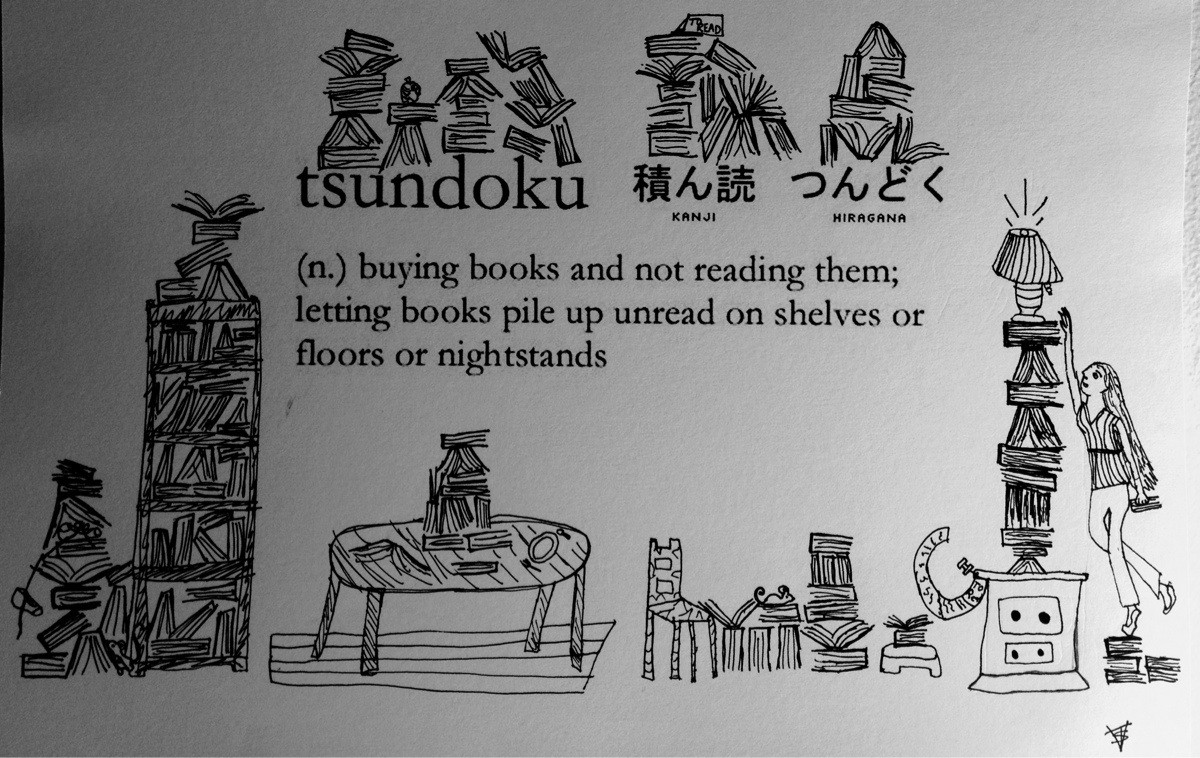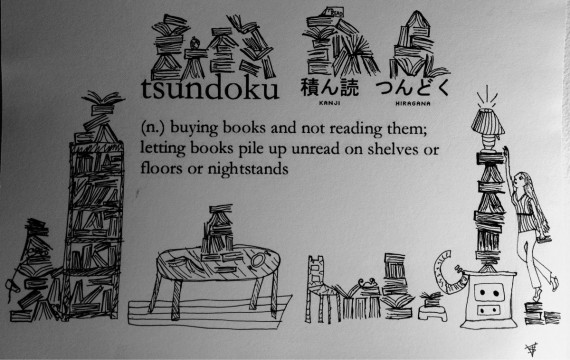Happy 8th Birthday to YouTube – Yesterday was the day. Who could have ever imagined? (It also happened to be my daughter’s birthday. Happy Birthday Fiona.)
Stephen King Delays E-Book! – In an effort to support physical bookstores he has delayed the ebook edition of his newest release.
The Anatomy of a One-Sheet – Barbara NcNichol provides a simple explanation that you can use to help promote your book idea for speaking and to the media.
A Free Membership to CopyBlogger – Access to 13 major articles and a 20 part video series on how to write good copy. This is where sales are made, in the back cover copy, in the one-sheet copy, and on your web site.
5 Reasons Why Libraries Will Fail – First published in 1864.
Tsundoku – Your word for the day. Expand your vocabulary with this one illustrated below… Books purchased but left unread. Even Goodreads has an entire bookshelf of popular tsundoku titles.







